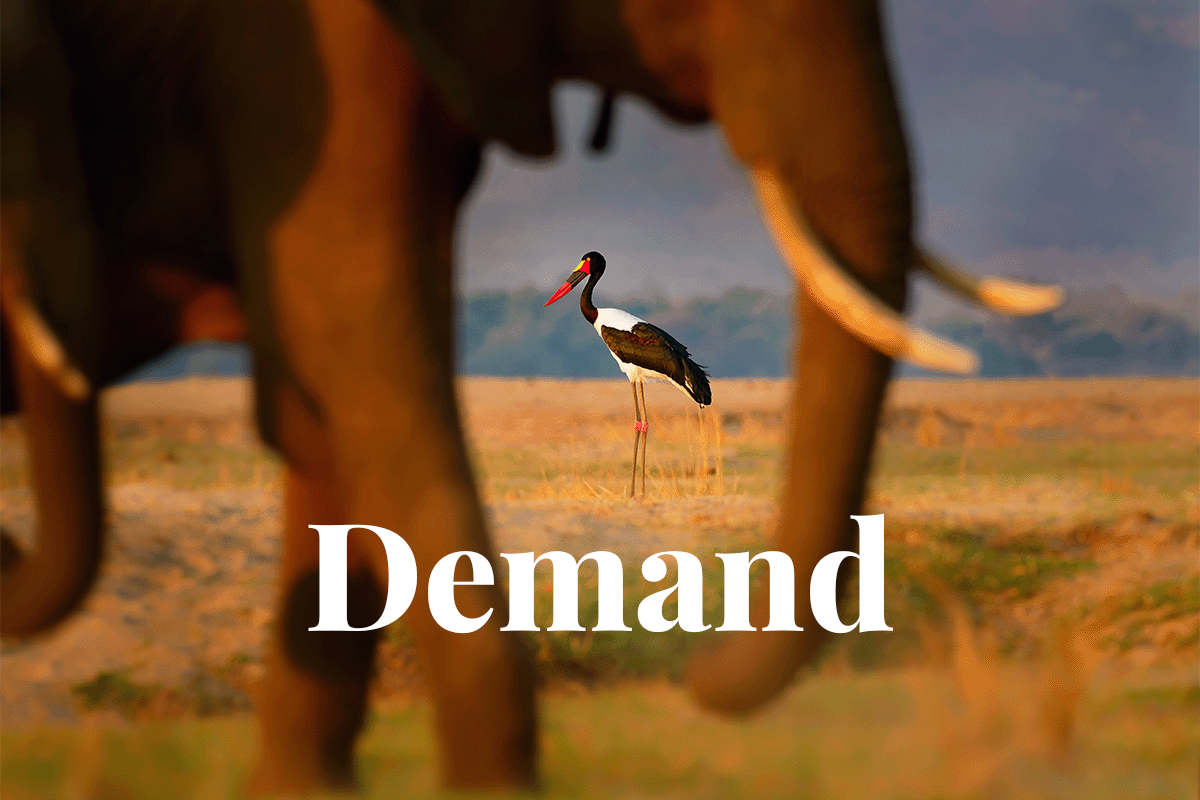In a recent survey conducted by the UN-backed Biodiversity Credit Alliance (BCA), companies have identified nature targets as a pivotal driver in the demand for biodiversity credits. Rated nearly four out of five in importance, companies see the business case for these credits in supporting their immediate needs and priorities. The survey, encompassing 29 companies across various sectors during Q2, also highlighted the significance of contributing to global biodiversity targets and the expectation of regulatory recognition of credits.
 African landscape view of a Saddle-billed Stork behind an elephant on a foreground.
African landscape view of a Saddle-billed Stork behind an elephant on a foreground.
Interest in the voluntary biodiversity market is escalating, yet actual trades remain limited despite emerging standards and pilots. According to the World Economic Forum, demand for biodiversity credits could potentially reach $180 billion annually by 2050 in a radical scenario. The emergence of nature targets in recent years, coupled with anticipated regulations, is expected to further boost the adoption of such targets.
The survey also emphasised key factors driving interest in biodiversity credits, including high credibility and quality, simplicity, geographic diversity, and potential linkage with carbon credits. Profit-making through resale was deemed the least important driver among the options.
Read more: The role of carbon credits in business: benefits, challenges, and future outlook
Regulation emerges as a potential catalyst for increased demand, aligning with financial regulations such as the EU’s Sustainable Finance Disclosure Regulation. However, the report notes that companies might use credits to delay regulation, arguing that voluntary actions demonstrate effective and less costly approaches.
While drawing lessons from carbon markets, BCA acknowledges the substantial differences between biodiversity and carbon markets. The survey's relatively low respondent number (29) limits broad conclusions, with potential purchasers still gaining an understanding of their needs.
Read more: Leading carbon credit standards unite for global environmental impact
BCA's next steps include publishing three papers on review mechanisms, definitions, and digital frameworks, workshops in 2024 examining offsets, conducting another survey, and exploring the role of governments in the biodiversity credits market.
At DGB Group, we staunchly endorse the adoption of nature-based solutions as the most effective approach to protect and rejuvenate our environment. Our expertise lies in developing and managing large-scale reforestation and afforestation initiatives dedicated to restoring biodiversity and depleted ecosystems. Our diverse range of solutions offers businesses, investors, and individuals accessible and transparent avenues to actively participate in the conservation of nature.
Safeguard nature with DGB’s biodiversity credits



